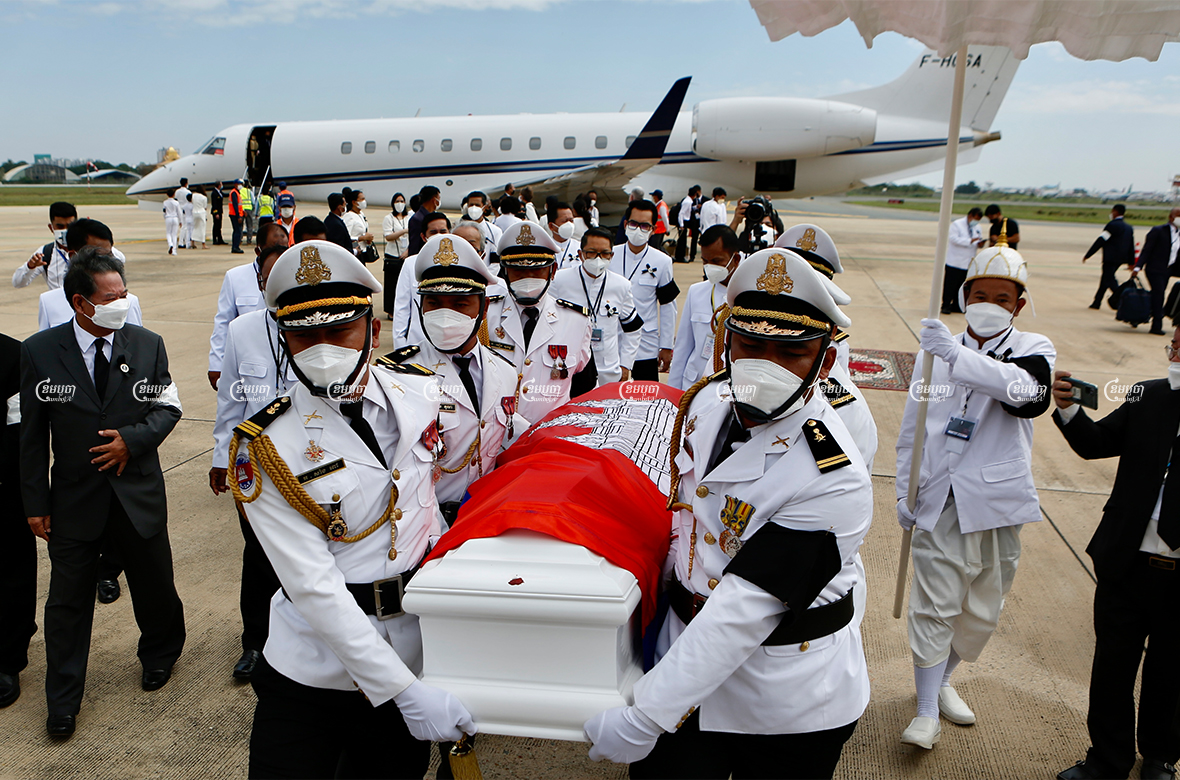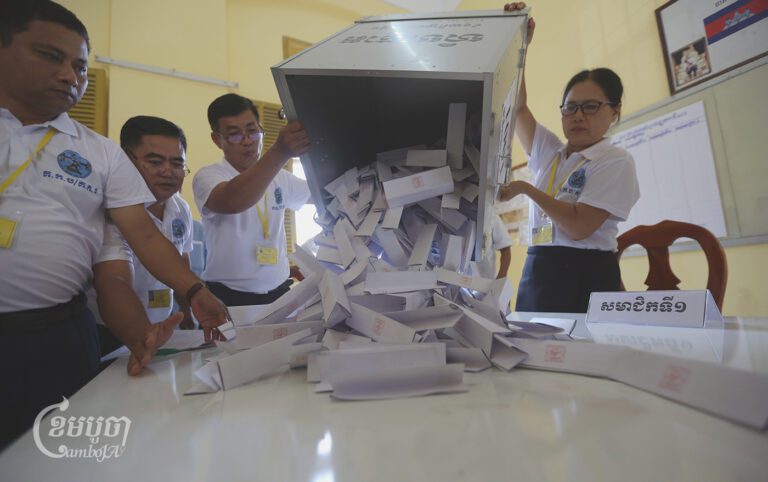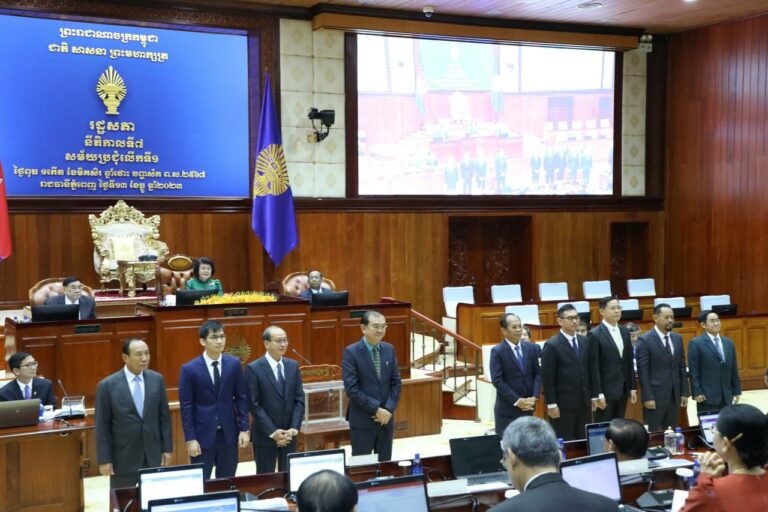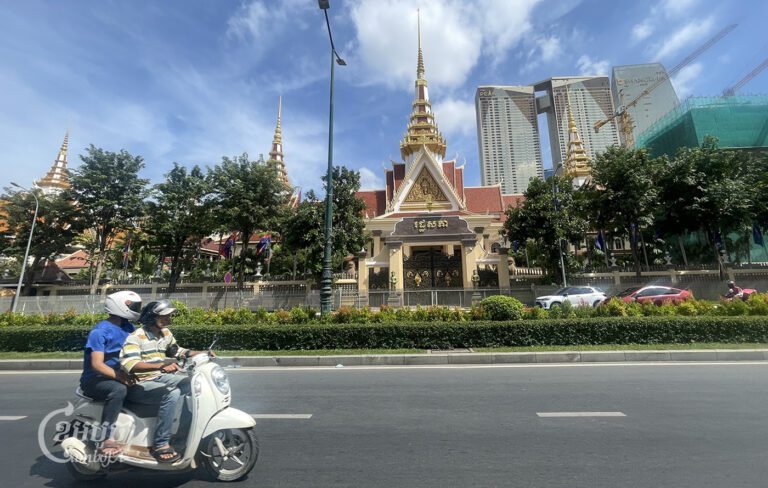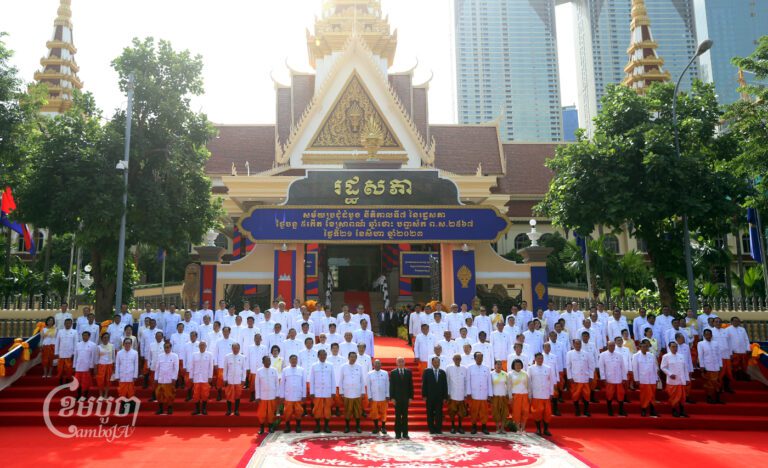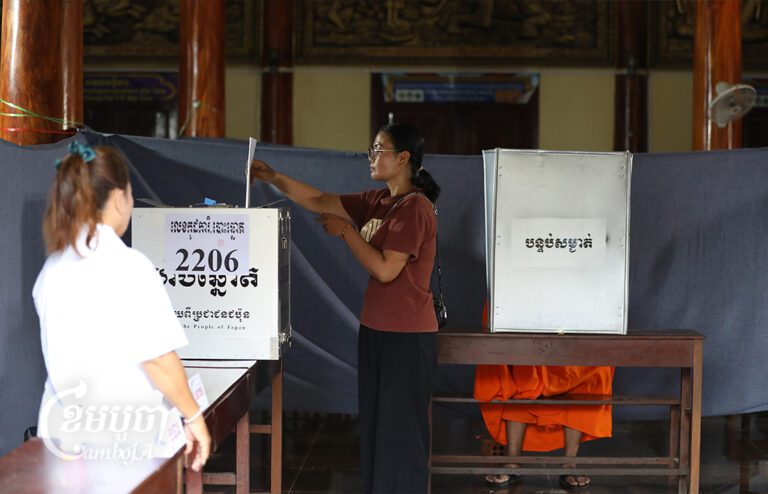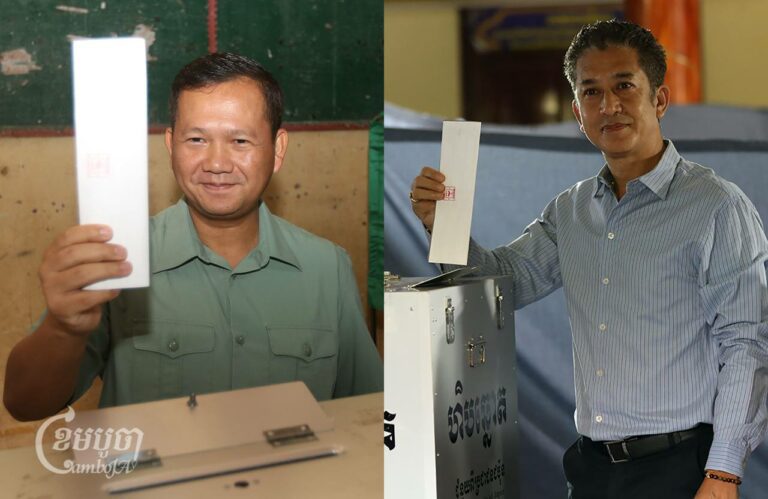The body of Prince Norodom Ranariddh, who died last week in France after a period of declining health, arrived Sunday morning in Cambodia to be laid to rest.
Ranariddh’s body was met at Phnom Penh International Airport by a party of his supporters and associates, including members of the royal family and the prince’s political party, Funcinpec.
The body of Prince Ranariddh then was sent to his residence along street 214 (Samdech Pan Street) in Boeng Raing commune, Phnom Penh’s Daun Penh district. According to a statement released last Friday, the Cambodian government has also chosen Wednesday as the official day of mourning marking the prince’s death.
Kong Boran, a former Funcinpec member of parliament, said she had served the prince for 30 years and was saddened by the news of his death.
“His work for 40 years was a great heroism for the younger generation, and a great person in defending territorial integrity and uniting the nation,” Boran said, pointing to the key role of the monarchy in preserving the identity of Khmer people.
The prince had been president of Funcinpec until his death, meaning the party will now need to find new leadership. Boran said she did not want to comment on the re-appointment of party leaders due to the upcoming royal funeral.
The crowd gathered at the airport also included those among the public who had supported the king throughout his life.
Kok Meanchey was among them. Meanchey, 59, said he was a 23-year-old supporter of Funcinpec and was deeply saddened by the death of the prince. Meanchey praised the life’s work of Ranariddh but said he also pitied the prince for his relatively quiet passing.
“I feel sorry for him because he did everything he could to protect and build Khmer unity, but the end result when he died there were not many mourners,” Meanchey said.
Ranariddh was born January 2, 1944, and was the son of the late King Norodom Sihanouk and his first wife, Phat Kanhol. The prince was educated in Phnom Penh and in France. In his early years in Cambodia, he was editor of Le Courier Khmer and served as the country’s delegate to the 1968 UN General Assembly.
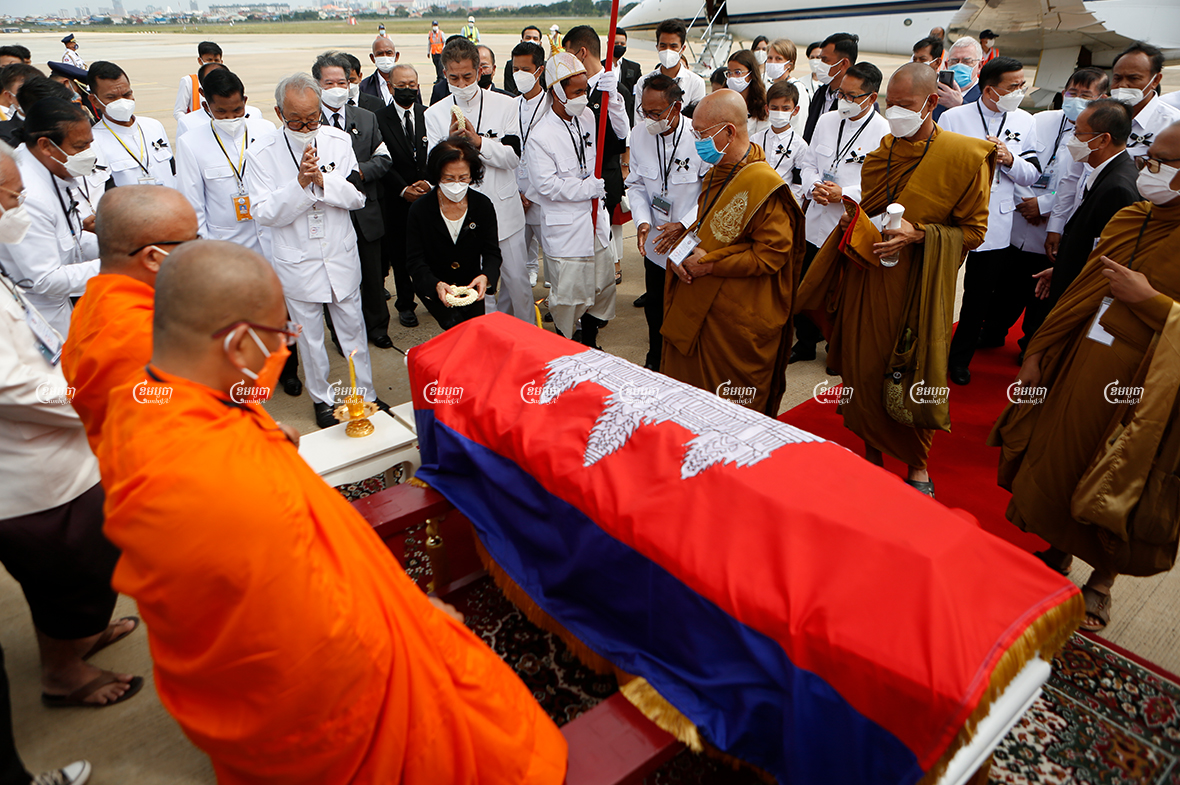
Ranariddh then went to law school in the French city of Aix-en-Provence, where he studied for his doctorate in civil law from January 1969 to 1976, with a break in the middle during which he returned to Cambodia to serve as a secretary for the Interior Ministry. In 1970, he was dismissed from his post after the coup of Lon Nol, which established the Khmer Republic. Ranariddh joined the resistance movement against that short-lived government and was imprisoned twice for his actions before returning to France in 1973.
There, he became a professor of political science and law at the University of Aix-en-Provence. He lived in France through the late 1970s and the Khmer Rouge era.
Ranariddh took an active political role for the first time in 1983 when he became his father’s personal representative in Cambodia and Thailand. The prince was later appointed commander of the National Army of Sihanoukists, the royalist-aligned, factional military group.
He later became the supreme commander-in-chief of National Army of Independent Kampuchea (ANKI), the successor group of the Sihanoukist army, before becoming president of Funcinpec.
As party president, Ranariddh was elected through the UN-brokered, 1993 election as the first prime minister of Cambodia, a role he split with Prime Minister Hun Sen. That was arranged despite Funcinpec winning the most seats in the National Assembly, after the CPP forced the royalists into a power-sharing agreement.
That shaky arrangement was broken in 1997, when the CPP defeated Funcinpec in armed conflict. With Hun Sen installed as sole prime minister, Ranariddh became president of the National Assembly after the 1998 national election. With that, he also served as the president of the king’s Supreme Privy Council, a position the prince held until his death.


